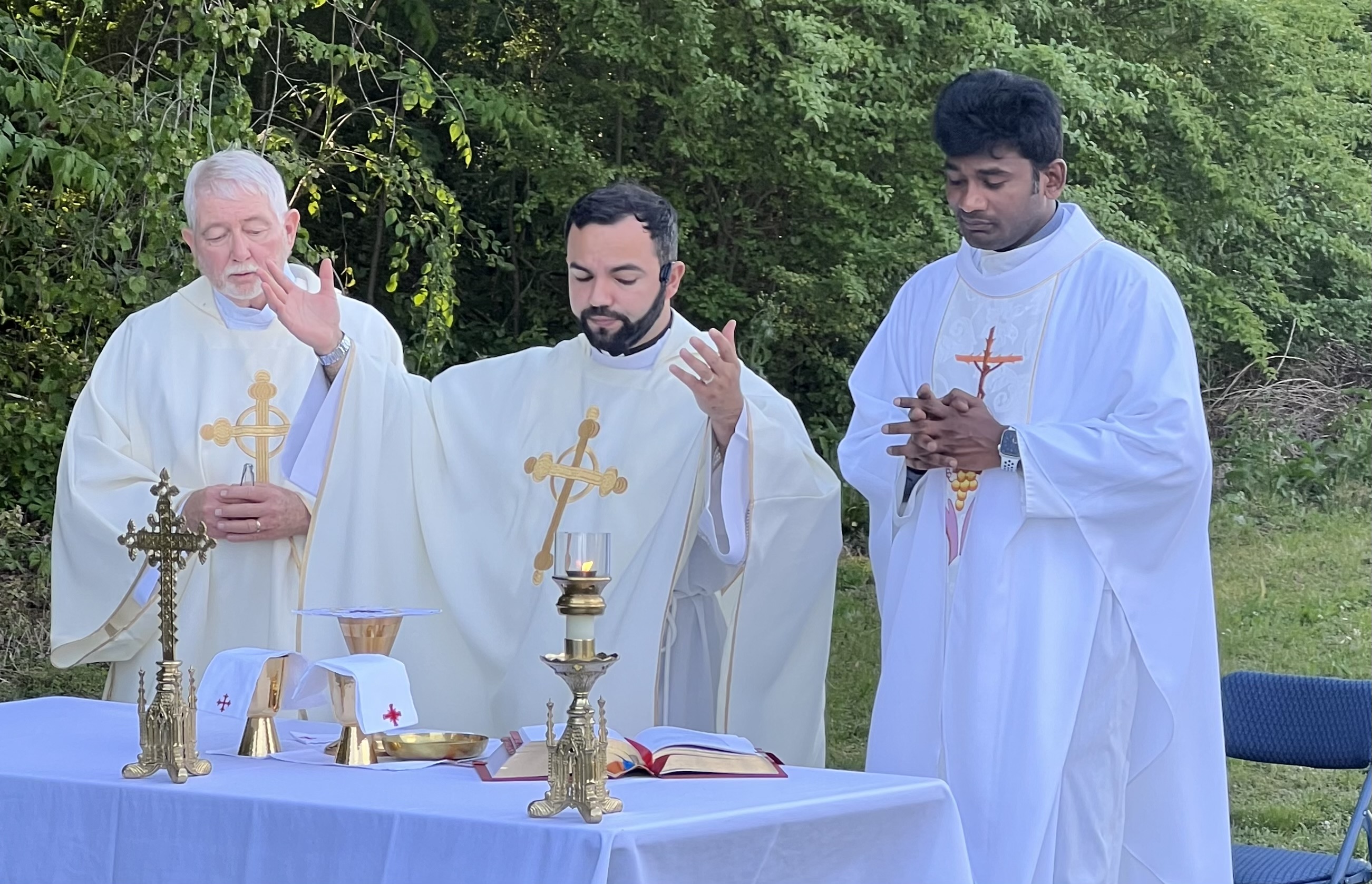College is a rite of passage into adulthood for many Americans. Leaving home, growing independent, and making life-longdecisions. The perfect storm of academic stress, homesickness, and independence can result in more than just the “freshman 15.” Hyper-obsession with success and satisfying more carnal desires abounds. Loneliness and despair, too. In his rules for the spiritual life, St. Ignatius of Loyola suggests how the enemy employs pleasures to entice people to “grow in their vices and sins,” whereas the indwelling Holy Spirit pricks and bites at one’s conscience (Rule 1; Romans8:4-6). The vices and sins on campus come in all shapes and sizes: vainglory, money, alcohol, and/or sex. An overall common denominator is a lack of interior peace.
_Founder_of_the_Jesuits.jpg)
College campuses offer a microcosm of the real world that attempts to usurp that Christ-sized hole in our hearts. Catholics compose a community of “heavenly rather than of an earthly nature,” united withChrist (Lumen Gentium II.13). Community, as secular doublespeak calls it,“networking,” is the means to heaven; we are not saved alone but connected as aBody (Col 1:18). Jesus’ Church. Wherein the party scene or the academic overachiever scene involves a community, Newman Centers are that community of imperfect believers striving for holiness.
Students experience the ups and downs in life acutely. Constant chaos ensures stress that affects not only students’ mental and physical health but also spirituality. Ignatius calls the downs in the spiritual life desolations, where one feels “without hope, without love, when one finds himself “all lazy, tepid, sad, and as if separated from his Creator and Lord” (Rule 4). These moments come and go, but a consistent spiritual down requires a radical encounter with one who gives all hope, who is all love: Jesus. As Ignatius states “we ought to rid ourselves of the things of this world to the extent that they get in the way of this end,” the end as the desire to “praise, reverence, and serve God, and by doing this, to save their souls”(First Principle and Foundation). Anything less than the Lord will not fill in that God-sized cavity in one’s heart. Only his presence can bring joy and fulfillment in this time of maturity.

A true encounter with Jesus happens most concretely through an openness to sacramental grace and the help of fellow believers. Infinite graces are open for students through daily Masses, confession, group rosary, recitation of the Liturgy of the Hours, small Bible study groups, service projects, peer mentorship, retreats, weekly fellowship dinners, and simply goofing off with one another. Spiritual dryness becomes consolation. Instead of loneliness and despair, consolation and hope in theLord. Instead of obsession over success and satisfying carnal desires, spiritual and corporal works of mercy. The community of like-minded Catholics draws in and evangelizes the campus. Students convert each year and those lukewarm in faith rediscover newfound conviction. Shallow friendships that would encourage obsession over personal success or partying are replaced by communities that encourage Mass attendance and small group Bible studies. At a point in time when “freedom” means living a life devoid from God, campus ministry shows students their true freedom in living out their call to holiness (1 Peter1:16; CCC 2013). True freedom is in Christ.
Newman Centers provide an oasis for spiritual consolation by providing the graces needed to cooperate with God’s saving plan(Rule 7), with the antidotes of prayer, meditation, and examination of God’s love and providing means of penance (Rule 6). A blessing that many Newman Centers have is the presence of priests staffed by dioceses or orders, with lay staff and student leaders who mentor and guide. These efforts are funded mostly by donors, alumni, and the student’s parents. Through mentorship, when one shares about struggles to a “good Confessor or to another spiritual person that knows his [the Devil’s] deceits and evil ends, it is very grievous to him, because he gathers, from his manifest deceits being discovered, that he will not be able to succeed with his wickedness begun” (Rule 13). These friendships in the Lord provide lifelong companions after college, with constant get-togethers for small events like meals, and major events like weddings and baptisms.

The work of Christ through his Church to bring all to the knowledge of the Father is made possible by the efforts of campus ministry (John 17). Their work provides the grace of conversion, conviction, and constancy to the faith life of countless students. Through campus ministry, the Church is present to prepare youth to live out their faith for the rest of their lives into eternal beatitude.
In the Diocese of Raleigh, thousands of students are ministered to by campus ministry at Elon University, UNC-Chapel Hill, Duke, NC State, UNC-Wilmington, and ECU. Prayers for these campus ministry centers ensure that the next generation of Catholics remains in the Church to live out their faith.
Seminarian Anthony Pham.





